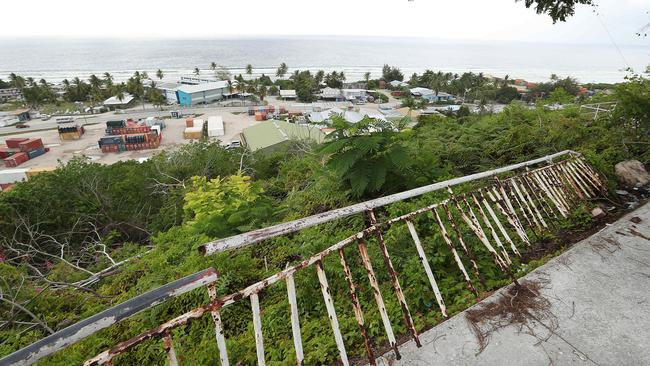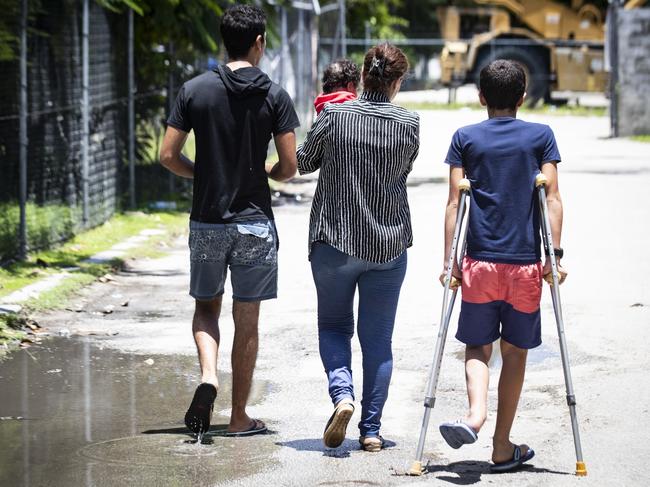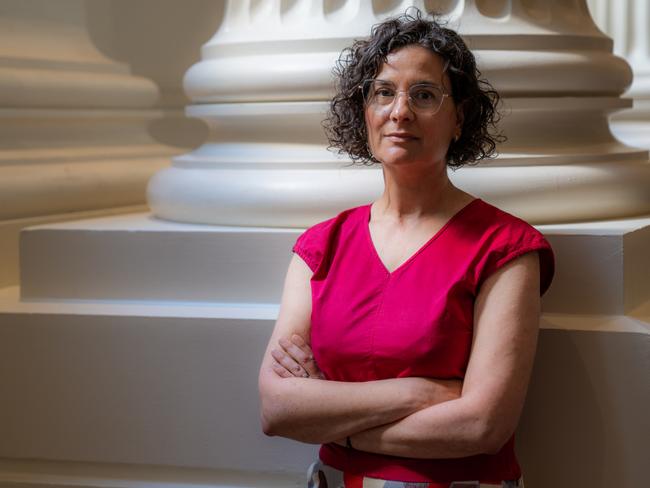Refugees reveal horror living conditions inside offshore detention
Refugees have revealed the horrific living conditions inside Australia’s offshore detention camps for the first time. Warning: Graphic video
National
Don't miss out on the headlines from National. Followed categories will be added to My News.
Four overflowing toilets shared by hundreds of people, families squeezed into filthy accommodation with rats and cockroaches, and mouldy water dripping from the ceiling.
This is what refugees at Australia’s offshore detention camps say they experienced while waiting for asylum, according to witness statements published for the first time.
As well as the revolting conditions, women were also subjected to sexual assault and rape and refugees were beaten by security guards, it’s alleged.
One dad on Christmas Island said there were no cots, prams, or enough milk for babies, while children often witnessed fights and suicides.
Other refugees on Nauru described how it was impossible to sleep in the huge tents at night because of the heat and that during the day they had to find shade outside until the sun went down.

The shocking details have been revealed in 32 witness statements released on Tuesday by the legal firm Maurice Blackburn.
One Iranian woman who arrived by boat with her family, aged 26, described how she was on strong antibiotics for two years due to continual urinary tract infections caused by poor sanitation.
While in detention in Nauru, she said she had to share four toilets and four showers with hundreds of people.
The woman described how showers were limited to around three minutes per person after which the guards would shut the water off. Some wore their clothes because there was little privacy.
“Often, I would still have soap on my body and in my hair when the water was turned off,” the Iranian woman said in her statement.
“This was not enough time to wash properly. The toilets were absolutely filthy.
“They were only cleaned once a week. They would often become blocked and there would be urine and faeces all over the floors and the walls and the toilet.”

She said they asked for cleaning products so they could clean the toilets, but was told it was not allowed in case people drank them to kill themselves.
She said many people, including herself, were covered in skin rashes, because water from the humidity would mix with mould on the ceiling of the huge tents and drip on them at night.
Later when the woman and her family were granted permission to live in the community in Nauru, her sister’s friend and mother were raped in two separate attacks.
Others described how they were beaten or robbed by the locals, with police failing to investigate their claims.

Maurice Blackburn’s principal lawyer Jennifer Kanis said the statements were part of 60 collected that were to be used in a class action to show offshore detention was unlawful.
However, the class action was discontinued following the High Court’s decision on another independent case, which meant they could not proceed.
“We really wanted to make sure these witness statements did not sit in our archives and that Australians got to hear their stories,” Ms Karis said.
“One of the shocking things is how similar all their stories are and how commonplace sexual violence and violence was and what children experienced.”
The Asylum Seeker Resource Centre said there were around 140 offshore detainees still stuck on Nauru and Papua New Guinea who have been there since 2013.
“After 10 years of being trapped offshore everyone is suffering,” Jana Favero, director of advocacy, said.
“They all need medical evacuation to Australia while awaiting outcomes.”
Maurice Blackburn used AI to create images to go with the statements which can be viewed at exhibitai.com.au.
For help with emotional difficulties, contact Lifeline on 13 11 14 or www.lifeline.org.au
For help with depression, contact Beyond Blue on 1300 22 46 36 or at www.beyondblue.org.au
The SANE Helpline is 1800 18 SANE (7263) or at www.sane.org
More Coverage
Originally published as Refugees reveal horror living conditions inside offshore detention





